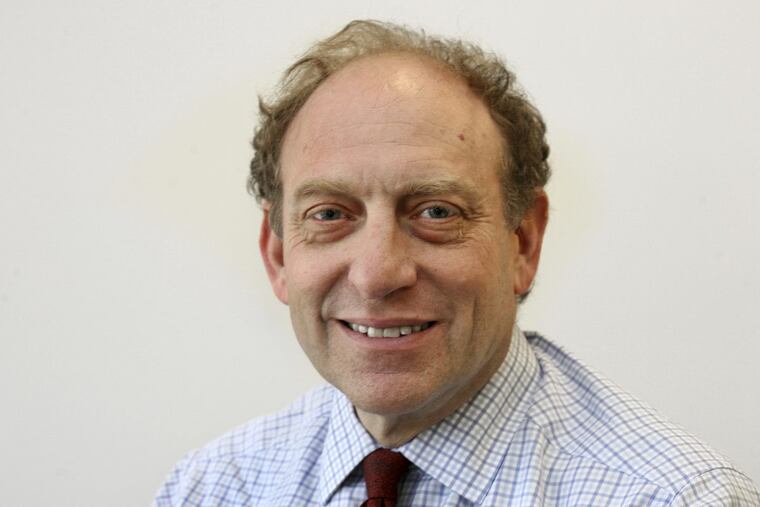Two new accusers emerge at NPR, adding to growing harassment scandal
One employee told officials that ousted editor had touched her inappropriately earlier this year.

Two more women have filed formal harassment complaints against NPR's ousted top editor, bringing the number who have accused him of misconduct to five, according to people familiar with the allegations.
The two complaints – one lodged last week and one on Tuesday – are against editor Michael Oreskes, who was forced to resign this week after a series of earlier accusations came to light at the public broadcasting organization.
The new allegations are significant because they came from NPR employees, both journalists, and allegedly happened while Oreskes was running NPR's newsroom. NPR's chief executive and president, Jarl Mohn, seemed to discount two previous accusations, first reported earlier this week by The Washington Post, saying they involved non-employees who accused Oreskes of harassing them nearly 20 years earlier while he was employed by the New York Times.
Mohn, who has acknowledged that his response has been inadequate, remains under fire by women at NPR for his response to the allegations against Oreskes. He has called for an all-staff meeting on Friday to address complaints that he moved too slowly to terminate Oreskes and was not transparent with the investigation process.
NPR spokeswoman Isabel Lara said Mohn forced out Oreskes after learning about one of the new employee complaints late Tuesday. She said he only became aware of the other employee complaint on Thursday, even though it was filed the previous week. "This is a quickly evolving situation," she said.
The accusation made Tuesday involves an inappropriate conversation Oreskes allegedly had with a young female employee last year, according to a person familiar with the complaint. While attempting to persuade the woman to reject an outside job offer, Oreskes purportedly invited her to his beach house, saying they could share bottles of wine there. She rejected the alleged offer and remained at NPR after she was promoted.
The woman filed a complaint about the conversation immediately after The Washington Post reported Tuesday that two other women had told NPR that Oreskes had kissed them against their will during business meetings in the late 1990s. At the time, Oreskes was the Washington bureau chief of the New York Times.
The woman's complaint apparently prompted Mohn to place Oreskes on leave on Tuesday night. He was forced out the next morning.
The other complaint was filed last week by an NPR producer who said Oreskes had inappropriately touched her during an encounter earlier this year. The woman came forward to NPR's human resources department after Mohn issued a memo on Oct. 20 reiterating NPR's harassment-reporting procedures. But this accusation seems to have played no role in Mohn's decisions about Oreskes.
Oreskes could not be reached for comment on the latest allegations.
Mohn acknowledged in an interview with NPR's "All Things Considered" on Wednesday that he was aware of three earlier complaints about Oreskes. But he suggested that two of these allegations – concerning Oreskes's alleged misconduct in the late 1990s when he was at the Times – belonged in a lesser category.
"The important distinction here is first, (those) did not happen at NPR, it was not an NPR employee," he said in the interview. "It was at the New York Times and it occurred 20 years ago. Had that happened at NPR we would have had a very different reaction to it."
He added, "One of the things we wanted to do as a result of that is make sure that that did not happen here. And I will tell you up to this moment sitting here and talking with you. … I'm not aware of anything that he's done or that happened that bears any resemblance to those issues that occurred 20 years ago while he was at the New York Times."
Mohn said he would address his handling of the budding harassment scandal at Friday's all-staff meeting.
"Tomorrow I would like to talk with you about what happened with Mike Oreskes and what I am doing about it," he wrote in a memo on Thursday. "I want to hear from you how we can move forward, together.
"I let you down," he added. "I should have acted faster and more decisively."
He announced that NPR would hire a law firm to review how NPR handled the allegations, a step sometimes taken by companies and organizations to ensure that an internal investigation is impartial. Another media organization, Fox News Channel, hired the law firm Paul, Weiss, Rifkind, Wharton & Garrison last year to investigate employee accusations of sexual harassment against the network's co-founder, Roger Ailes, and others.
The Post reported Tuesday that two women said Oreskes had kissed them unexpectedly and put his tongue in their mouths in the late 1990s. One told NPR's management about the unwanted contact last year; she repeated the accusation in mid-October, around the same time a second accuser told a similar story.
Another accuser, NPR producer Rebecca Hersher, told NPR in October 2015 that Oreskes had said inappropriate things to her during a dinner meeting. Mohn told "All Things Considered" that NPR investigated her complaint "and put (Oreskes) on notice that this could not occur" again without serious consequences.
Yet NPR kept Oreskes on the job despite receiving complaints about his conduct at the Times in 2016 and again in October.
In a statement Wednesday, Oreskes didn't address any specific allegation. But he said, "I am deeply sorry to the people I hurt. My behavior was wrong and inexcusable, and I accept full responsibility." He said he was grateful to his colleagues "for every minute I've had to work with each of you. … Public radio matters so much and I will always be your supporter."